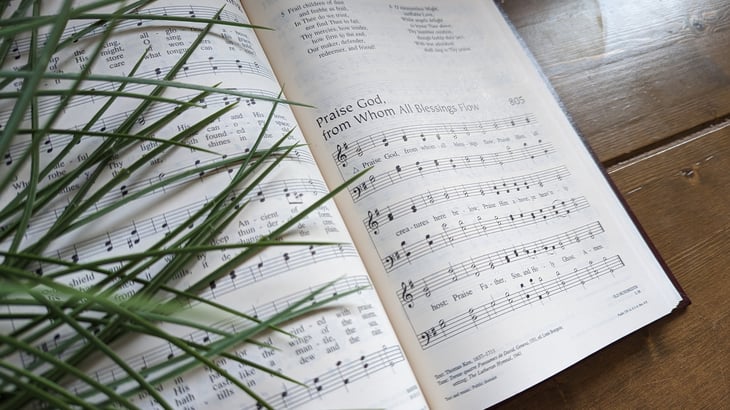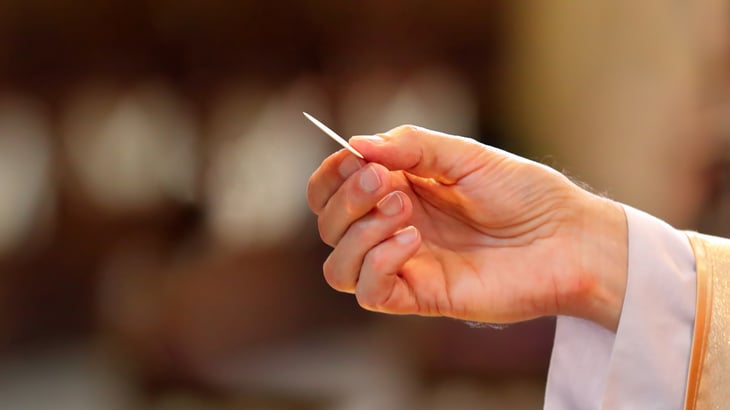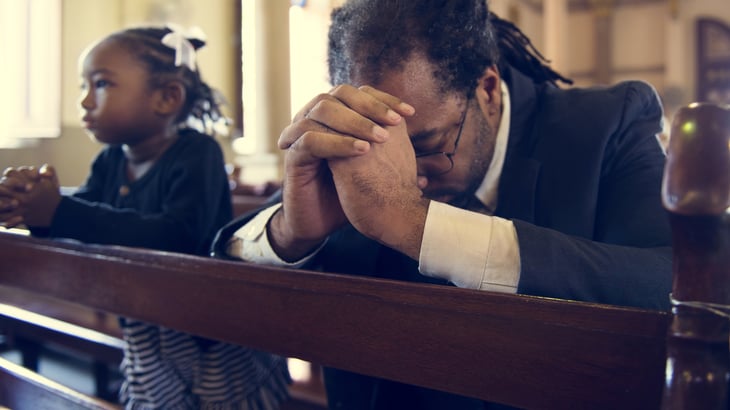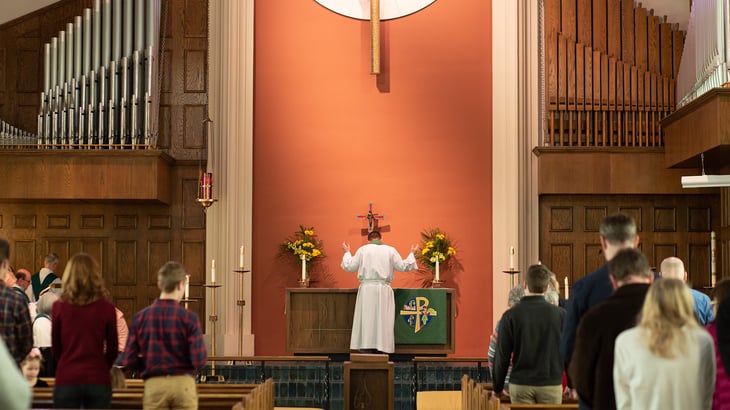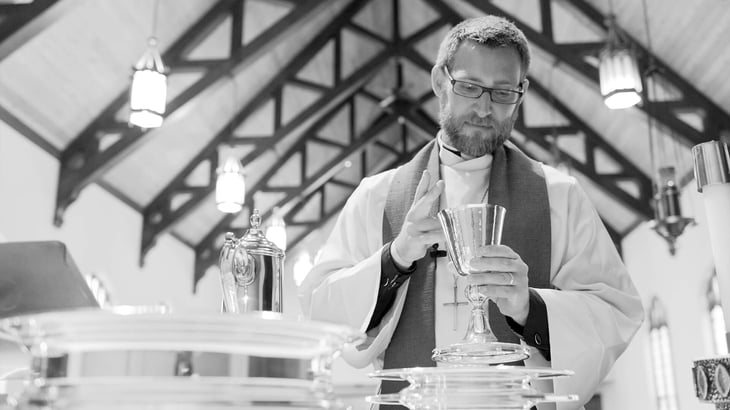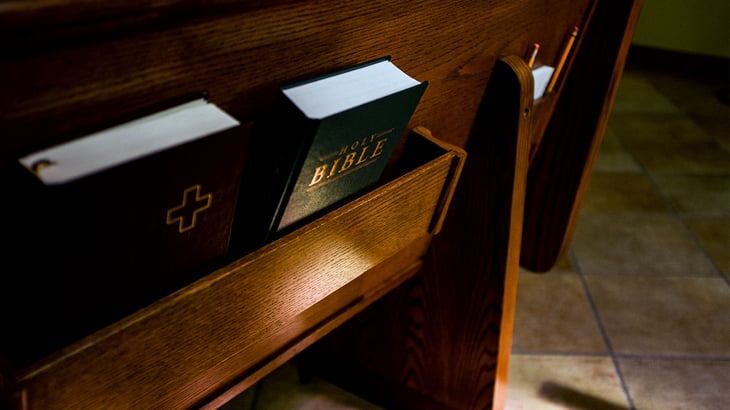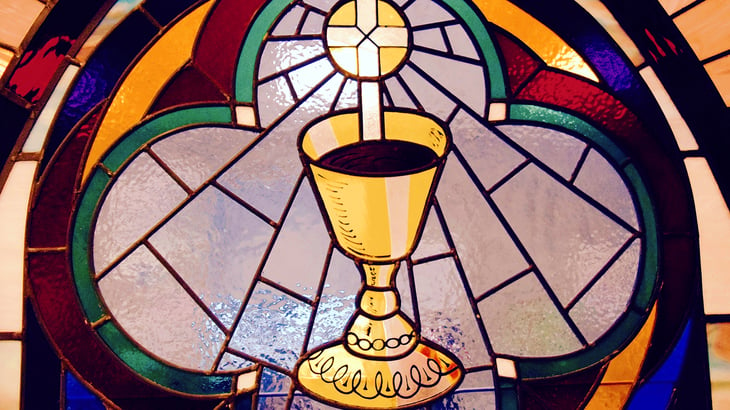The Doxology in Worship
When you hear the word doxology, what comes to your mind? For many, it’s a familiar tune and the words:
Music and Language Drawing Us to the Lord’s Supper
My husband and I recently received a little toy piano for our daughter. It is the perfect size for her. She sits on the floor and bangs the keys with her little fists, squealing in delight as the acoustic piano plinks out various clashing chords.
Ceremony in the Divine Service
“I was raised Catholic, but, I dunno. Mass is just … well, it’s so much ceremony.”
This was overheard at a recent get-together. You may have heard a similar sentiment directed at the Lutheran Divine Service and its faithful use of liturgy. It seems that ceremony can be a bit of a deterrent to some, especially in our casual culture. But I would argue that it is the very ceremony of the Divine Service that beckons and invites those outside the Church in.
Why Do Christians Celebrate Communion at Christmas?
When I was a child, my church always sang “Let All Mortal Flesh Keep Silence” on Christmas Day as the Communion elements were processed into the sanctuary. The congregation would start quietly and crescendo with each verse, serving to highlight the Lord’s Supper as the high point of the service. We would have the hymns printed in a bulletin, so I remember being surprised the first time I realized that this hymn is found in the Lord’s Supper section of the hymnal rather than the Christmas section.
The Importance of Movement in the Divine Service
As anyone who spends time around kids can attest, children love to move. In fact, it is often difficult to get them to sit still, and many teachers know how beneficial it is to plan lessons in which children can move their bodies while still learning. Like many things, this characteristic of children speaks truth about human beings in general: we are made to move.
The Name of the Lord in the Liturgy
This blog post is adapted from Blessed Be His Name by Rev. Dr. Kevin S. Golden.
Scripture teaches us to call upon the name of the LORD, bless His holy name, give thanks to His name, praise His name, and hallow His name. In doing so, we worship Him because He and His name are inseparable. This worship focuses upon what He has done for us and upon His delivering the benefits of His work to us. The apostle John proclaims the benefit we receive from the name of the LORD: “These are written so that you may believe that Jesus is the Christ, the Son of God, and that by believing you may have life in His name” (John 20:31). Life is bound up in the name of Christ. The life of Christ, eternal life, victory over death, is given you in His name. The Church’s liturgy, therefore, delivers His name so that you have life.
Understanding Worship: Service of the Sacrament
The Service of the Sacrament is the celebration of the Sacrament of the Altar. The Sacrament was instituted by Jesus Christ for the forgiveness of sins. It is to be celebrated by all Christians until Christ comes again on the Last Day. Read this excerpt from Worshiping with Angels and Archangels: An Introduction to the Divine Service below to learn more about this part of the Lutheran worship.
Understanding Worship: Service of the Word
Have you ever wondered why there are so many aspects of Lutheran worship? What about the style of music, the order of service, or even the weekly lectionary readings? Lutheran worship follows an ancient tradition that dates back hundreds of years. This includes the practice of incorporating the Service of the Word into regular services. Keep reading to learn more about this special part of Lutheran worship.
The Beautiful Routine of the Liturgy
A day or two before Ash Wednesday, I remarked to my husband, “I can’t wait for Lent.” In a dreary year of isolation, anxiety, moral quandaries, political polarization, disease, and death, compounded all the more by the last few months of gloomy, wintry skies and cold weather, I am ready for spring. Lent means that spring is coming and that Easter is drawing ever nearer. It is a yearly routine that remains unchanging even in the face of a pandemic and societal disruption.


